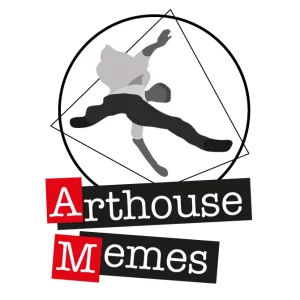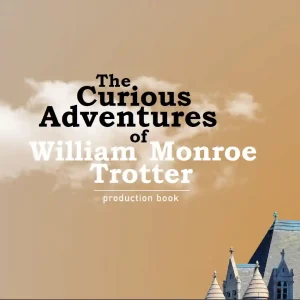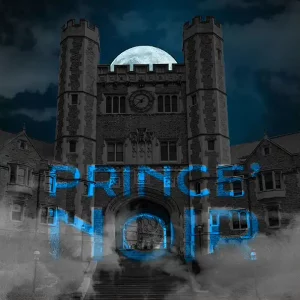
ArtHouse Memes is to be created by the UCHV Research Film Studio of Princeton University for the European Cultural Center Exhibition at the 2024 Art Biennale in Venice, which runs from May to November of 2024 and attracts hundreds of thousands of visitors.
ArtHouse Memes seeks to give poetic justice to a systematically injured people via the art of cinema transformed by the fresh technical-vernacular competence of today’s youth. This project has grown out of a Research Film Studio course entitled Hidden History of Hollywood. The latter is a survey of a hidden canon of African American arthouse cinema. The class uncovers the roots of representational injustice in Hollywood and the secret, but cardinal role Woodrow Wilson played in the production and distribution of D. W. Griffith’s enormously influential The Birth of a Nation (the film that led to the rebirth of the KKK). Wilson’s policy of segregation was adapted by Hollywood as a self-censoring industry regulation of representation. Hollywood became Wilson’s propaganda machine fully during the First World War. Black people could only appear on screen as subservient and marginal characters, never as equals, partners or leaders. This industry code, Wilson’s legacy, then became second nature to Hollywood. Arthouse Memes presents a creative subversion of the strong industrial, commercial, and propagandistic aspect of American filmmaking. The formation of the American film canon is an ongoing struggle between civil rights activism and a Jim Crow system of representation. The Princeton students of the Research Film Studio want to assist this creative struggle with sophisticated canon formation via the ArtHouse Memes exhibition. Our exhibition will give an opportunity to a global audience to be inspired by unfamiliar, systemically injured and overlooked people and by the unjustly unacknowledged, undistributed, underrated chroniclers of their lives.
The exhibition also constitutes an avantgarde exploration of the co-productive powers of the art of filmmaking, architecture, and theater armed with cutting-edge applications of geometrical optics and sound- engineering. The roomful of technologically and artistically innovative film installations will reveal the immense potential of the art of cinema to inspire new forms of modern art that challenge our imagination and cognition through the senses. In particular, ArtHouse Memes introduces novel ways of articulating and dynamizing space by using a combination of immersive optics and directed sound as well as a hieroglyphic language of cinematic memes held together by the syntax of film montage. The common thread along the various kinds of film installations is the tension and fusion between “masking” and “iconicity”, everyday life and ritual, TikTok aesthetics and arthouse filmmaking via the multi-sensory and multimedia metamorphosis of the most memorable clips of Afro-American cinema. The ArtHouse Memes exhibition is a radical rethinking of the art of filmmaking and architecture in their relation to each other.
The project involves Princeton faculty and undergraduates, many of whom we hope will also go to Venice and take part in a global conversation on art and historical injustice. The project builds on the success of a previous exhibition at the 2023 Architecture Biennale, which won the European Culture Centre’s University Innovation Award in a competition with MIT, Harvard and many other universities.
(subject to funding)
Woodrow Wilson was the most prominent intellectual of the white supremacist culture war waged against equal rights for Afro-Americans. Wilson propagated a falsified history of the Civil War and Reconstruction. He also glorified the Ku Klux Klan as the legitimate ruler of the South. As President, Wilson reshaped the federal government to reflect the general will of the Southern whites to dominate Afro-Americans and unleashed a state propaganda machine to change public opinion in the North that hitherto rejected white supremacy.
On the presidential campaign trail, Wilson made the promise to William Monroe Trotter, founder of the Equal Rights League, that, as President, he would uphold the law that granted equal rights to Afro-American citizens. Trotter then organized the black vote for Wilson, despite the latter being the candidate of the Democratic Party. Trotter first went to the White House in 1913 to remind the president of his promise of equality and freedom for Afro-Americans. Wilson made yet another empty promise to look into the complaint about segregation of the federal government, pretending that he had no knowledge of it.
Our first short film is a reenactment of the third meeting between Trotter and Wilson, as documented by official White House transcripts. Trotter this time sets a mousetrap for Wilson and actually catches the conscience of the king.
Our research-filmmaking method, in which artistic imagination is guided by disciplined scholarship, is best suited for the exploration of the cunningly covered-up, under-documented, falsified and disremembered history of the American people. In addition, the cinematic reenactment of Trotter’s successful outing of Wilson as the political force behind the legalization of segregation could be cathartic if screened on the Princeton campus.
Prince’ Noir, or, Tales from the Campus is a short film based on three actual events that took place on the Princeton campus involving black students during the time when Woodrow Wilson (then known as Tommy) was an undergraduate. Two of these stories can be found in the ‘Princeton Slavery Project‘ website and one in Barksdale Maynard’s Wilson biography. The film will retell these tales from pluralistic points of view creating suspense and some confusion. One of the stories, however, positively uplifting. When five Southern students presented James McCosh with the ultimatum that either they leave Princeton or he expels his black student from his psychology class, President McCosh answered that “they would have to go, for under no circumstances would he exclude the Negro from his class so long as he wanted to attend.” Prince’ Noir is a campus film – nothing can prevent us starting production in the fall. We have several award-winning directors lined up to advise us on Zoom.
In the interface of environmental and film studies, this multidisciplinary course investigates the phenomenology of home in relation to the environment and a the civilizational (both cultural and technological) paradigms of colonizing versus nomadic homemaking through examples from masterpieces of cinema and our own short research film exercises.

The research filmmaking exercises provide the students with concrete immersive experiences on which might form their choices for future research, augment the students’ experience and provide the highest level of assisted learning. Cognitive competence for quantum thinking can be educated by finding new strategies of representation and expression via 360-degree, immersive filmmaking from an environmental perspective in a radical break with the classic single fixed-point of view and tangible-object fetishism habitual to the mind. Making quantum research films enable students to use their imagination counterintuitively, so that the mind can adjust to the extreme conditions of quantum systems of non-tangible relationality and to non-directional spatial-temporal conceptions.
This course surveys a hidden canon of African American film while also uncovers the roots of representational injustice in Hollywood and the secret, but cardinal role Woodrow Wilson played in the production and distribution of Griffith’s “The Birth of a Nation” that led to the rebirth of the KKK. Wilson’s policy of segregation was adapted by Hollywood as a self-censoring industry regulation of representation. Black people could only appear on screen as subservient and marginal characters, never as equals, partners or leaders. This industry code, Wilson’s legacy, has become second nature to Hollywood.







